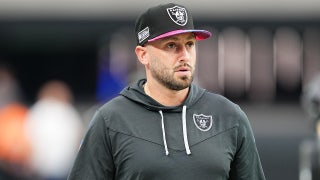ALBUQUERQUE, N.M. – More than 7,000 fans filed past the coffin of Johnny Tapia Sunday at the University of New Mexico arena, “The Pit”, to pay their respects to five-time world champion boxer who died May 27.
For Tapia, "Mi Vida Loca" was more than a tattoo across his stomach, it was a prophetic testament to a life fighting opponents in the ring and demons in a tormented soul.
Tapia was defined not only by his boxing accomplishments, his drug abuse, the murder of his parents, mental illness, or even his foibles that landed him in jail on more than one occasion but his unconditional kindness and generosity, a trait many who saw the unrelenting ferocity of his punches in the ring were always taken aback by.
As news of Tapia's death spread the gym he co-founded with long time friend Chris Chavez, in northeast Albuquerque, quickly turned into a shrine. Dozens of flowers, votive candles, cards, a bag of straws -the kind he would always chew on, and numerous cans of Dr. Pepper lined the front of the building.
"He would drink a case of Dr. Pepper a day," Chavez said with a chuckle while wiping a tear.
An elderly woman with a thick Spanish accent stood outside viewing the memorials and said she was the one who left the straws.
"Did you see the straws? Johnny always liked to chew on those," she said.
The inside of Team Tapia Gym became a chapel where visitors spoke in low voices to the backdrop of Ranchero music playing on a CD player as Chavez greeted visitors extending their condolences. Along the walls, like relics in a church, people stared at the robes Tapia wore in various bouts, fight posters, and mementos of a world champion. A laptop computer inside the ring played videos of his fights where at one point a father and his two sons reverently knelt against the blue vinyl covered ropes and said a silent prayer.
"Johnny had his problems but that's not what he will be remembered for," Chavez said.
Chavez, who was always with Tapia on his undulating journey through life, said he accepted responsibility for his drug use and arrests, never blaming anyone or anything, hoping people would learn from his mistakes.
"His demons were his demons," Chavez said. "He always took full responsibility for what he did because he wanted people to be better than he was."
As a result of his failings, Tapia would always be the first to empathize with those who struggled with their own problems.
"His favorite saying was, 'It doesn't matter how many times you fall, dust yourself off and keep going'," Chavez said.
Tom Crego, who Tapia always call "Pops," was one of those people.
An avid boxing fan, Credo first met Tapia at a banquet 15 years ago. Crego, who was a recovering alcoholic, was starstruck when he was introduced to Tapia. Not knowing how address the champ Crego just gave Tapia the one-year sobriety chip he received from Alcoholics Anonymous.
"Johnny began crying and hugging me, he wouldn't let go," Crego said. "Chris told me he cried all night staring at the chip."
That's when he knew there was more to Tapia than just a boxer.
Both Chavez and Crego agreed that in a sport where egos abound, Tapia was among the rare examples of a celebrity who put others first. To a certain extent, Chavez said this may have contributed to Tapia's problems.
"Johnny knew he was a celebrity and he tried to live up to everyone's expectations," Chavez said. "He wanted people to love him."
No matter where Tapia was found in Albuquerque, a throng of fans would appear. Rather than dismiss them with a wave of his concrete fists or retreat into an entourage he would embrace the opportunity signing autographs and speaking to everyone as if they were a lifelong friend.
"Hey! Where are you going, don't you want a picture?" he would say as people began walking away after getting an autograph, Chavez said.
With Tapia's death, Chavez said he is not sure what he will do with the gym. He said Tapia spoke with him matter-of-factly six months ago about what he would do with the gym if he died.
"We talked about it three or four times over the years and I just shrugged it off, not thinking I would actually be put in the position to have to make that decision so soon," Chavez said.
The cause of Tapia's death has yet to be determined by the Office of the Medical Investigator in Albuquerque. It was reported that Tapia told his nephew hours before his death that he was complaining of stomach pain and would go to the hospital later. His body was found in his house around 6:30 p.m., with Pepto Bismol and a single Hydrocodone tablet by his body.








































